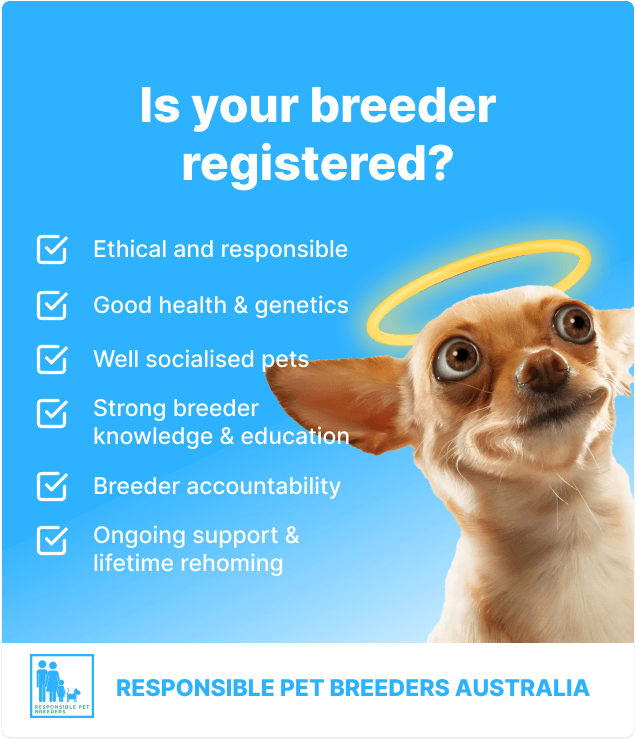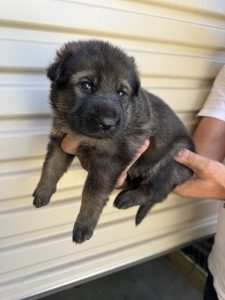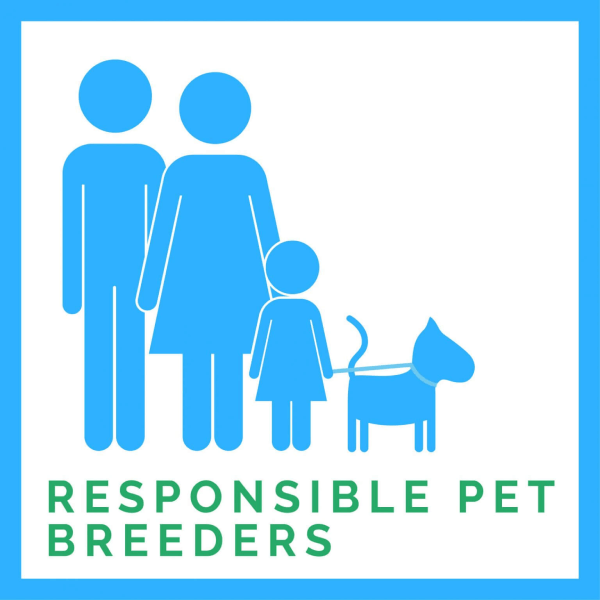Available Puppies & Dogs For Sale
There’s a certain magic to sharing your days with a dog in Australia.
Maybe it’s a big, goofy Lab tearing through the surf like it owns the coastline. Maybe it’s a whip-smart Kelpie putting in a full shift out on the station. Or maybe it’s a scruffy little Cavoodle claiming the best spot on the couch like they pay rent.
But as more families start the search for that perfect pup, the question of "where did this dog come from?" has started ringing a bit louder.

Filter 
Search
Breed
Location
Price Range
Search dogs across Australia
Puppies & Dogs For Sale
There’s something special about life with a dog in Australia.
Whether it’s a Labrador splashing through the surf, a Kelpie rounding up cattle in the Outback, or a Cavoodle curling up on the couch, dogs have well and truly cemented themselves as part of the Aussie way of life.
 Questions To Ask A Breeder
Questions To Ask A Breeder
- Are you are registered breeder?
- Can we meet in person?
- Have they been socialised?

Breed Characteristics
Grooming
Coming soon.
Exercise
Coming soon.
Size Range
Coming soon.

Picking out a puppy isn’t just about falling for a cute face or a shiny coat. It’s about making sure that little life has had the right start—good genes, solid early care, and a breeder who actually gives a damn.
That’s where registered breeders step up. These folks aren’t just producing puppies—they’re putting time, care, and know-how into raising healthy, confident dogs with the best possible shot at a happy life. Behind every sturdy little tail-wagger should be a breeding setup that puts welfare, not quick wins, at the top of the list.
Why It’s Better to Buy from Registered Breeders on PetsForHomes
Bringing a puppy into your life is one of those heart-swelling, life-shifting decisions—but where you get that little furball from matters just as much as the name you give it. And that’s where PetsForHomes flips the script on the typical puppy-shopping experience. Instead of crossing your fingers and hoping for the best, this platform helps you pair up with breeders who actually give a hoot about doing things the right way.
-
Transparency & Trust
Every breeder on the platform has to lay their cards on the table. That means you’ll find real details—breeder ID numbers, health records, and the kind of background info that cuts through the fluff. You’re not left guessing or chasing down half-answers. It’s all there, in black and white.
-
Health & Welfare Come First
These aren’t backyard setups run on the fly. Registered breeders have to stick to proper welfare standards—which means clean living spaces, vaccination schedules ticked off on time, and pups raised with care, not just cranked out. These dogs aren’t just healthy; they’re handled with attention from day one, so they arrive with confidence, not baggage.
-
Expert Advice for the Perfect Match
The best breeders on PetsForHomes actually talk to you about what works. They’ll ask about your household, your schedule, your noise tolerance, your idea of a lazy Sunday—and help match you with a breed that fits your lifestyle, not just your Instagram grid.
-
An Easy, Safe Buying Experience
Online pet listings can be hit-or-miss—but PetsForHomes keeps it clean. You get full write-ups, proper photo galleries, and verified breeder profiles. No cryptic answers. Just a platform that’s built to make smart choices easier.
How PetsForHomes Ensures Safe & Ethical Puppy Purchases
Here’s the part that separates this marketplace from the wild west of online classifieds: PetsForHomes puts welfare first. Every breeder must tick off key requirements before a listing ever goes live. That includes:
- Breeder ID Numbers - So you know you’re dealing with someone who actually meets the rules laid out by your state or territory.
- Microchip Info - Because keeping track of who’s who is half the battle.
- Vaccination + Health Records - Want to know what vet work’s been done and what’s still on the to-do list? It’s all there in black and white.
- Proper Photos + Full Writeups - If you can’t tell what the pup looks like or where it came from, don’t bother. That’s not the case here.
Breeders can even boost their visibility with upgraded listings, which makes it easier for buyers to spot the good eggs first.
Australia's Most Popular Dog Breeds
In Australia, certain dog breeds align well with the diverse lifestyles and settings found across the nation. Each breed displays distinct traits, urging potential owners to deliberate on the best match for their lifestyle. For instance, an energetic individual may resonate with the vigor of a Border Collie, whereas someone desiring a tranquil companion might favor the mild nature of a Cavoodle.
- 1. Cavoodle
- 2. Pomeranian
- 3. Golden Retriever
- 4. Groodle
- 5. Border Collie
- 6. Pug
- 7. French Bulldog
- 8. Labradoodle
- 9. Australian Shepherd
- 10. Cocker Spaniel
- 11. German Shepherd
- 12. Kelpie
Common Questions To Ask Your Dog Breeder
Now, even with a good breeder, you’ve still got to do your part. Asking the right questions can separate a seller just trying to make a buck from someone who genuinely cares where their puppies end up.
Here’s what to dig into:
- Can I meet the parents—or at least see where they’re raised?
- What kind of social exposure have the pups had?
- Which health checks have been done on the parents, and can I see the results?
- What support do you offer after I take the puppy home?
- How do you decide which dogs you breed from?
A breeder worth your time won’t hesitate. In fact, they’ll probably welcome your questions—and throw a few back at you, too. Because the goal isn’t just to sell you a puppy. It’s to make sure that puppy ends up in a home where it’s truly meant to be.
A responsible breeder should be able to show you at least one of your desired dog’s parents. Often, you won’t get to meet the father, as most sellers do not own it. What’s important is that you get to meet the mother so that you can assess her temperament and general health.
Although most potential buyers overlook this step, it is a crucial part of the dog-selection process. Meeting the parents and interacting with them will give you a better idea as to what your canine will look like and how it will behave when it becomes an adult.
If the litter is around, do not hesitate to ask your seller to meet it as well. Get to know each puppy by playing with it and holding it. If it shows fear, aggression, or other behavioural issues, take it as a sign to walk away and find another breeder.
Most dogs are socialised as early as six weeks of age to prepare them to live in a new home. When they are not properly socialised by the time they reach the age of adoption, which is between eight and 12 weeks old, chances are, they will become difficult to handle.
It is, therefore, important that you ask your breeder if they socialise their canines before selling them. Find out if your desired dog has already been exposed to different people, animals, sights, scents, and sounds. This way, it won’t have difficulty adjusting to a new living environment.
Some canines, whether purebred or crossbreed, are predisposed to genetic defects. This is why you should ask your breeder if the parents of the dog you wish to adopt have been tested for all health issues common to their breed.
Additionally, find out from your seller if they provide the parent dogs with any preventative care such as annual vet examinations, vaccinations and boosters, and routine prevention for fleas and ticks.
Finally, question your breeder if any of the parent dogs have experienced a health issue in the previous weeks. If the answer is yes, ask what the vet’s evaluation was and how the problem was treated. This way, you know what preventative measures to take for your canine.
Once you have taken your new dog home, do not introduce it to an entirely different diet right away. This can take a toll on its health. It is recommended that you continue feeding it what it has been used to eating for at least a couple more days.
When introducing new foods to your canine, do it slowly. You can start by mixing a few of the new kibbles with the old ones.
Before you adopt a dog for sale, you will want to confirm that it has been taken to a vet for screening and vaccination. A good breeder should be aware of how far their dog has come on its shots and be able to tell you when the next schedule is.
Ideally, all dogs should have received their first series of vaccinations between six and nine weeks of age. The second series should have been administered at 10 to 12 weeks old. If your breeder has failed to have their canine vaccinated, make it your responsibility.
Although not mandatory, a health guarantee is customary in dog breeding and buying. Do not worry if your seller does not offer one, as this doesn’t mean they are untrustworthy or that their canine is not well-bred.
What you can do is ask your breeder the following questions:
- Can I give the dog back if I can no longer care for it due to health reasons, old age, or any other unfortunate circumstance? If not, can you help me find another suitable home for it?
- Can I return the dog if it is found to have a severe illness a few weeks after I bring it home?
- If I cannot return the dog even if it is found to be sick, will you fully refund me?
- If you do not offer a refund, what will you do to compensate for the inconvenience?
Safe
Responsible
Accountable
Find your next pet with PetsForHomes - Australia’s number one free website to find a pet for sale or adoption.
Trusted & Viewed by over 1 Million Australians





